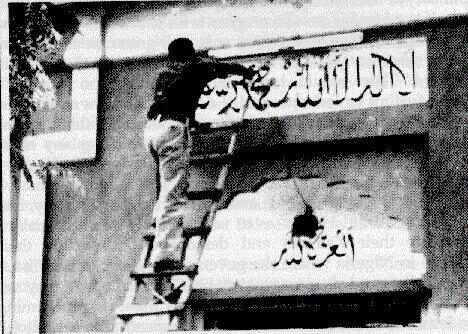Ataul Fatir Tahir, Al Hakam
Scan the whole life of Prophet Muhammad, peace and blessings of Allah be upon him, and you will fail to discover hatred – in any shape or form – promoted by him. After all, he was the “Mercy for Mankind”.
Sadly, some of those who claim to “follow” this Prince of Peace find a second wind of hatred targeted at Ahmadi Muslims during, what is meant to be, the holy month of Ramadan; a period reserved for prayer, reflection and spiritual improvement in Islam.
This hatred usually originates from Pakistan, a country that claims to be based on Islamic principles. From government ministers and TV presenters supporting extreme clerics to artists trying to improve their following; instead of focusing on the real purpose of Ramadan, it is prime time for these so-called defenders of Islam to sensualise attacks against Ahmadi Muslims. I desire not to detail the expressions of animosity against Ahmadis this Ramadan as it is there for all to witness.

Yes, Muslims are taught to avoid unhealthy disputes, fighting and quarrels in everyday life, but Ramadan is when you really hone in and battle against the natural self that incites.
The Holy Prophetsa emphatically made it clear that if a Muslim is fasting, they must steer clear of all forms of disputes, fighting and hatred and respond to the one who is picking the fight with “I am fasting, I am fasting”. Ahmadi Muslims, no matter what comes their way, will always offer this response to the persecution and hatred they face; it is what defines us; “Love for all, hatred for none”.
Ramadan is meant to be reserved for becoming a better human being, advancing in humanity and charity and emulating the peaceful and charitable character of Prophet Muhammadsa. It’s a time for getting rid of differences, uniting, becoming models of peace and coming out of Ramadan as better human beings. Ruining fasts by sowing discord, spewing hatred and calling for Ahmadis to be murdered is far from what Ramadan promotes – in fact, it’s far from Islam itself.
How do Ahmadis respond, you may ask?
Well, like our Khalifa has always taught, we increase our prayers before Allah, we send more salutations (durood) upon Prophet Muhammadsa, we grow in our pursuit of reading and understanding the Holy Quran, we excel in helping humanity further, we reaffirm our faith vowing never to let go of the revival of Islam that Hazrat Mirza Ghulam Ahmad, peace be upon him, brought.
It is sunnatullah – practice of Allah – for all divine communities to face persecution; the Holy Quran is brimming with examples of past prophets and how they were labelled “liars”, “mad” and “misguided”, while also being physically persecuted.
These divine communities do react, they file a complaint to an Authority who always supports them; the Most Great and Powerful God:
اِنَّمَاۤ اَشۡکُوۡا بَثِّیۡ وَحُزۡنِیۡۤ اِلَی اللّٰہِ وَاَعۡلَمُ مِنَ اللّٰہِ مَا لَا تَعۡلَمُوۡنَ
“I only complain of my sorrow and my grief to Allah, and I know from Allah that which you know not”. (Surah Yusuf, Ch.12, V.86)
It is clear who follows the practice of Prophet Muhammadsa and who does not.


Its mind boggling, at the time of the Holy Prophet (sa) if you claimed you were a Muslim you would be persecuted by Non Muslims. Nowadays if you claim to be a Muslim you’re persecuted by other Muslims.
I myself have personally experienced a social boycott where our water supply pipe was cut, we were unable to go outside to buy food and any supplies, our home and clinic were burnt down, and this was done during the month of Ramadhan. On one occasion my face was blackened with ink and I was dragged into the streets of my city, then beaten and kicked like a football. I have been arrested for wearing a Kalima badge and spent 40 days in jail. So many Ahmadis have stories of suffering like this.
اِنَّمَاۤ اَشۡکُوۡا بَثِّیۡ وَحُزۡنِیۡۤ اِلَی اللّٰہِ
I only complain of my sorrow and my grief to Allah
This beautiful heart’s cry of Hadhrat Yaqub (as) is felt true in the hearts of all Ahmadi Muslims. This truth gives us life that Our God is listening to our cries — why should we fear anyone else.